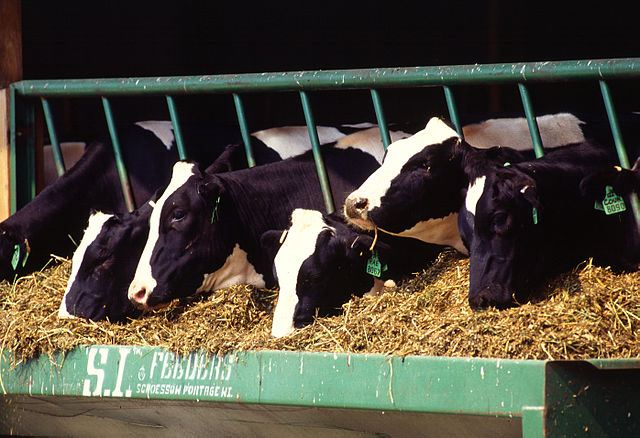
Buy out the farmers: Montreal think tank proposes end to supply management
by Canadian Manufacturing.com Staff

A new MEI paper argues the Canadian government should abolish the dairy, poultry and egg control systems by giving farmers $13 billion for their quota, a fraction of their market value

The right-leaning think tank says the total market value of dairy, poultry and egg sector quotas current amount to $34 billion
MONTREAL—The Montreal Economic Institute wants to buy Canadian farmers off the quota system.
The Quebec think tank, a perennial critic of supply management, has tabled its latest proposal to do away with the dairy, poultry and egg management systems it says hurt both businesses and consumers.
Looking to emulate policies used in Australia, the MEI says the government should use a temporary tax to pay farmers for their quota—the intangible asset that allows farmers to produce and sell milk, poultry or eggs at a fixed price.
“If the government decided to compensate farmers for the value of their quotas over a period of ten years, it would have to offer them annual payments of $1.6 billion,” said Alexandre Moreau, the paper’s co-author and a Public Policy Analyst at the MEI. “Yet the net benefit for consumers would be from $3.9 billion to $5.1 billion each year, and up to $6.7 billion once the reimbursement period is over.”
The MEI plan proposes paying farmers an estimated $13 billion for their quota—a fraction of their market value, which the think tank estimates to be about $34 billion.
While the compensation plan would drastically undercut current prices, the paper’s authors say it’s fair to both new and long-time farmers.
The amount farmers would receive for their quota would be determined on a case-by-case basis, “providing excessive compensation to farmers who bought their quotas at a fraction of the current price, or received them free of charge, while being fair to those who acquired quotas recently at a higher cost.”
Australia implemented a similar system in the early 2000s by levying a tax on retail milk sales.
“This exit plan would be positive and fair both for farmers and for consumers. Now, it’s up to public decision-makers to take action and dismantle this regime that is unfair and costly for consumers, all while adequately compensating farmers,” Moreau said.
Canadian supply management remains a controversial topic both in Canada and beyond—particularly with some of the country’s key trading partners.
Dairy supply management, for instance, recently came under attack from U.S. president Donald Trump—though Canada’s Ambassador to the U.S., David MacNaughton, said the facts did not back up Trump’s claims. The quota systems were also put under the microscope during negotiations for the now-stalled Trans-Pacific Partnership.
Supporters of supply management say the quota systems do not raise prices for consumers and ensure farmers can earn a stable income.
The release of the think tank’s paper coincides with World Milk Day, for which Dairy Farmers of Canada and several other groups have set up a pop-up diner in Ottawa to showcase the benefits of supply management.
Marking the occasion, DFC president Wally Smith said Canada’s dairy industry is “growing and thriving.”
“Our unique system of supply management allows us to produce nutritious, wholesome milk for Canadians in a sustainable way, and is the best system in the world,” Smith said in a statement. “We are grateful for the support that Canadians continue to show our farmers.”
You can read the MEI paper here.